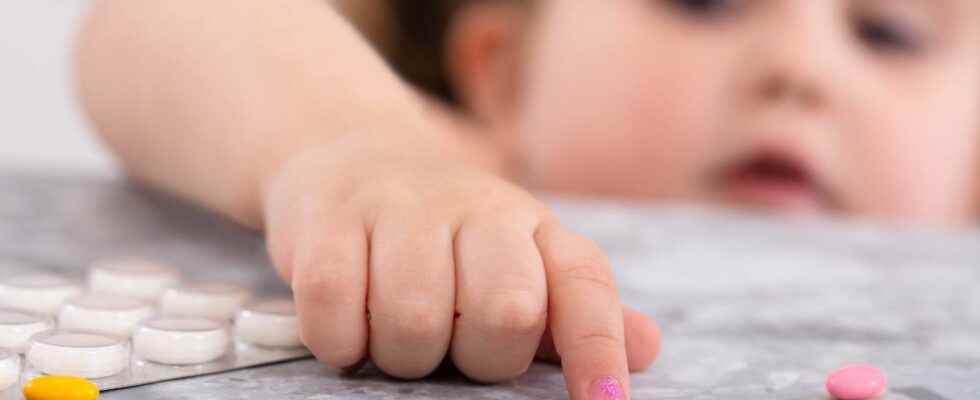During the Covid-19 pandemic, some of us had trouble falling asleep and turned to melatonin supplements to help. As a result, confined children have found themselves exposed to these products and the number of involuntary ingestions of melatonin has exploded in ten years, with sometimes very serious consequences.
You will also be interested
[EN VIDÉO] What influences the quality of my sleep? The screens, the temperature but also the psychological and genetic factors are to be controlled to enjoy a pleasant sleep.
For years, dietary supplements based on melatonin, which help with falling asleep, have a privileged place in medicine cabinets, but even more so with the Covid-19 pandemic. The ubiquity of melatonin in the form of tablets, capsules, drops or gummies in homes has mathematically increased children’s exposure to these products. the Center of Disease Control (CDC) indicates that melatonin poisoning increased by more than 500% among children in the space of ten years.
Children hospitalized with too much melatonin
In 2012, the first year of monitoring, 8,337 cases of pediatric ingestion (children under 19) of melatonin were recorded, compared with 52,563 cases in 2021; an increase of 530%. In ten years, a total of 260,435 children ingested melatonin and were treated in American poison control centers, which represents more than 2% of all pediatric ingestions treated over the same period.
These ingestions concerned almost all children under 5 years of age, they were involuntary and took place within the home. In most cases, they do not have any dangerous consequences for health. Nevertheless, among the approximately 260,000 ingestions of melatonin by children, approximately 27,000 developed symptoms gastrointestinal, cardiovascular or neurological which required hospitalization, including 1% in intensive care. Over the 10 years of follow-up, two children — babies 3 and 13 months old — died from excess melatonin.
Food supplements with variable composition
Food supplements are not subject to the same controls as health products. The CDC points out, citing a 2017 Canadian study, that the information displayed on the label does not always correspond to the actual composition of the product: 71% of the products analyzed and sold in Canada have a composition different from that advertised. In addition, there is great heterogeneity between batches from the same manufacturer.
This is especially the case for food supplements in the form of gelled gum, which are more attractive to children and also easier to ingest. The Canadian study also highlighted the presence of serotonin, a by-product of melatonin, in significant quantities that may have clinical consequences in children. To avoid any problem, food supplements must be stored out of reach of children in the same way as household products or medicines.
Special offer: for Father’s Day, offer the best of Science!
Your father is a great science enthusiast and unusual discoveries? And if you offer him a superb scientific exploration in paper format? Benefit from -20% on the Mag Futura (special offer: €15 instead of 19 €): 220 pages to explore 4 scientific issues that will shape our future!
Mag Futura is:
- 4 major scientific questions for 2022, from the Earth to the Moon
- 220 pages, 60 experts: no fake news, just science
- Home delivery with electronic gift card
- An independent scientific media
Interested in what you just read?
